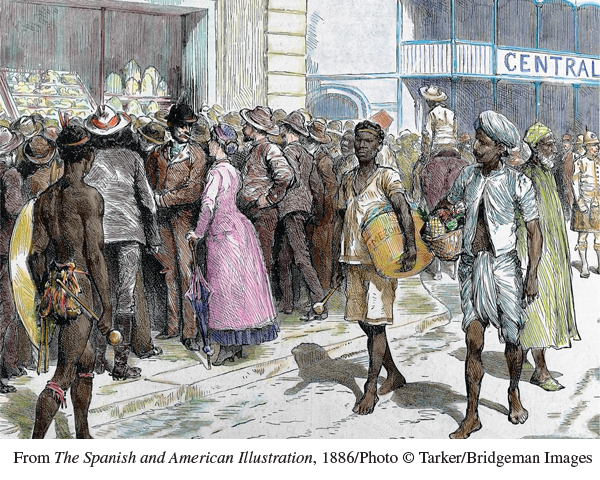A History of Western Society AP®: Printed Page 648-g
Industrialization created a tremendously dynamic economic system that allowed Europeans to establish or enlarge far-flung political empires around the world, and force non-Western nations to open their doors to Western economic interests. Millions of Europeans also emigrated abroad in a global mass migration, and an ever-growing stream of people, products, and ideas flowed into and out of Europe. This “new imperialism” was motivated by national rivalries within Europe itself, competition for export markets for manufactured goods, and the search for raw materials for industry. It rested on a formidable combination of superior military might, sophisticated transportation and communication technologies, advances in medicine, and strong authoritarian rule. Pseudoscientific ideas about racial superiority and moralistic assertions that Europeans had a “civilizing mission” to improve the lives of nonwhites provided ideological justification for imperialism, although a few commentators within Europe argued that imperialism was not economically beneficial or was morally wrong. Artists and writers were fascinated by foreign cultures and societies; some portrayed them in stereotypical ways as primitive and exotic, while others drew on visual forms in African and Asian works to create new styles. Imperialism posed a brutal challenge to African and Asian peoples, which different societies met in different ways, but by 1914 non-Western elites in many lands were rallying their peoples and leading anti-imperialist nationalist struggles for dignity and independence. (Pages 792–822)

